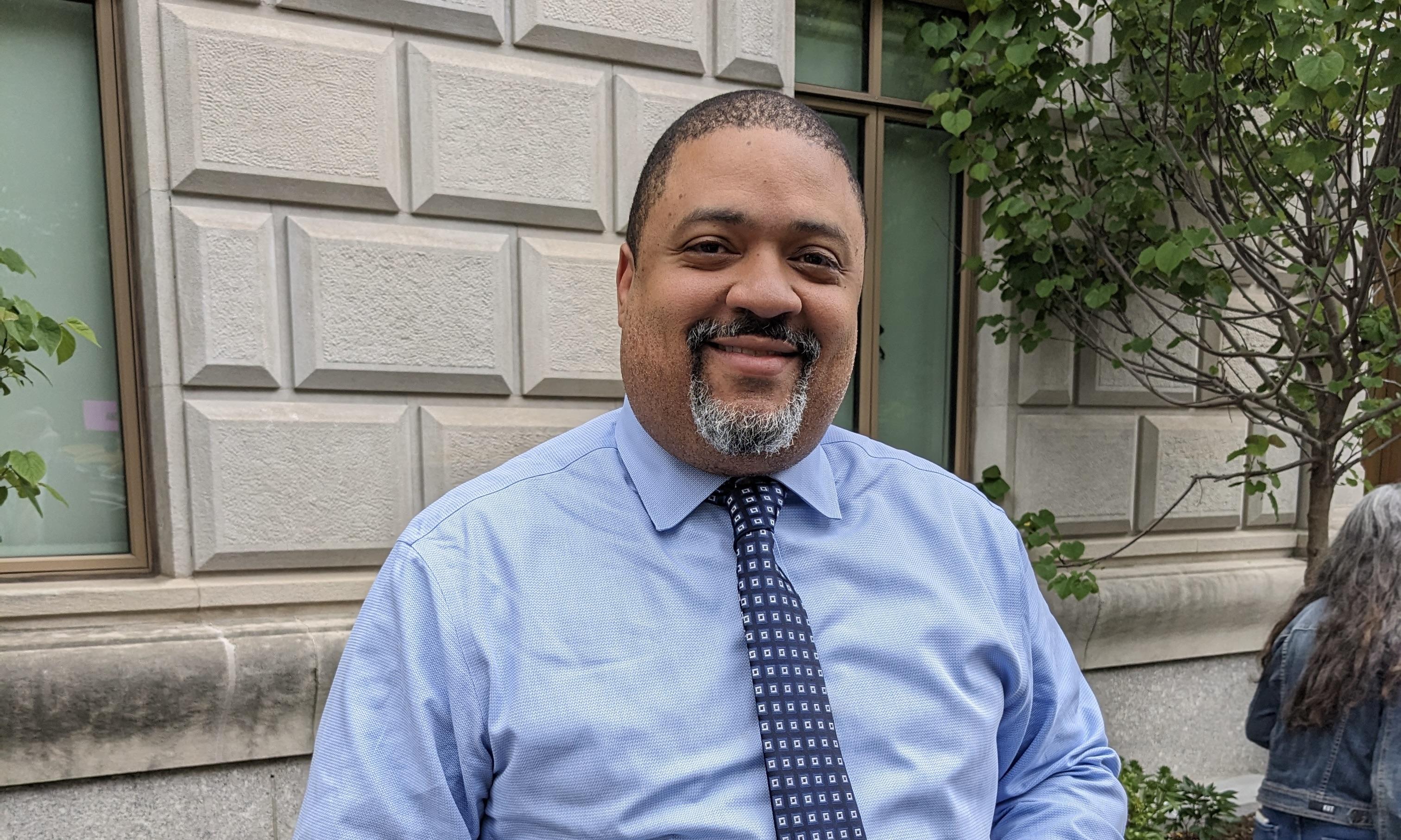Former federal prosecutor Elie Honig has criticized Manhattan District Attorney Alvin Bragg’s handling of the hush money case against President-elect Donald Trump, asserting that it “poisoned the well” for subsequent Trump-related cases. Writing in New York Magazine, Honig argued that the hush money charges were not only the weakest of Trump’s four indictments but also undermined the credibility of more serious cases that followed.
Bragg’s Case: A Controversial Start
Bragg’s indictment earlier this year charged Trump with 34 counts of falsifying business records in connection to hush money payments made to adult film star Stormy Daniels before the 2016 election. Trump denies Daniels’ allegations of a 2006 affair and maintains his innocence, calling the charges politically motivated.
In May, Trump was found guilty of the charges, but his sentencing—originally scheduled for July 11—has faced multiple delays. Judge Juan Merchan postponed the sentencing indefinitely last week and allowed Trump’s legal team until December 2 to argue for dismissal, citing Trump’s recent election victory as a potential factor for immunity. Prosecutors have been given a week to respond to these arguments.
The Fallout of Bragg’s Case
Honig described the Manhattan case as the least serious of Trump’s legal troubles, yet it was the first to reach indictment and trial. “If you have four arguments and lead with the weakest, you sabotage your own case,” Honig wrote. He added that Bragg’s prosecution has now “collapsed” and entered its “final resting place.”
Legal experts are divided on whether Bragg’s approach to the case has negatively impacted Trump’s other indictments. These include a classified documents case in Florida, a federal indictment over alleged interference in the 2020 election, and a state case in Georgia related to similar allegations. Trump has denied all charges and dismissed the cases as politically motivated “witch hunts.”
Trump’s Legal Landscape
As the first president to face criminal charges while seeking reelection, Trump has navigated the cases while rallying his political base. His spokesperson, Steven Cheung, called the Manhattan case a “hoax” and celebrated the sentencing delay as a victory, emphasizing that Trump’s electoral win signals public support for him to return to the White House and end the legal “witch hunts.”
Meanwhile, DOJ special counsel Jack Smith, who oversees two of Trump’s federal cases, is reportedly preparing to step down after the inauguration. Trump has publicly vowed to fire Smith and his team immediately upon taking office.
Reactions on Social Media
The fallout from Bragg’s case has sparked intense debate on social media, with users weighing in on the legal and political implications:
- @LegalEagle90: “Bragg’s case was a dud from the start. What a waste of resources.”
- @MAGA_Truth21: “Another win for Trump! The swamp is falling apart!”
- @JusticeForAll33: “Bragg mishandled this, but let’s not forget the other serious cases Trump faces.”
- @LiberalLioness: “Typical Trump strategy: delay, deny, and rally his base. Let’s see how this plays out.”
- @NYCObserver: “This is what happens when prosecutors chase headlines instead of solid cases.”
- @LawAndOrderNow: “Bragg should have known better. The weakest case going first was a terrible strategy.”
What’s Next?
Judge Merchan has yet to announce a new sentencing date for the Manhattan case, leaving its future uncertain. Bragg’s office has suggested deferring all remaining proceedings until after Trump’s term ends in January 2029, indicating a potential willingness to revisit prosecution in the future. For now, Trump’s legal battles continue to unfold as he prepares to assume office in January.



 Iran Supreme Leader Ayatollah Ali Khamenei Killed in Israeli, U.S. Strikes: Reuters
Iran Supreme Leader Ayatollah Ali Khamenei Killed in Israeli, U.S. Strikes: Reuters  UK Accepts U.S. Request to Use British Bases for Defensive Strikes on Iranian Missiles
UK Accepts U.S. Request to Use British Bases for Defensive Strikes on Iranian Missiles  Pentagon Leaders Monitor U.S. Iran Operation from Mar-a-Lago
Pentagon Leaders Monitor U.S. Iran Operation from Mar-a-Lago  U.S.-Israel Strike on Iran Escalates Middle East Conflict, Trump Claims Khamenei Killed
U.S.-Israel Strike on Iran Escalates Middle East Conflict, Trump Claims Khamenei Killed  Russia Signals Openness to U.S. Security Guarantees for Ukraine at Geneva Peace Talks
Russia Signals Openness to U.S. Security Guarantees for Ukraine at Geneva Peace Talks  Israel Declares State of Emergency as Iran Launches Missile Attacks
Israel Declares State of Emergency as Iran Launches Missile Attacks  Zelenskiy Urges Change in Iran After U.S. and Israeli Strikes, Cites Drone Support for Russia
Zelenskiy Urges Change in Iran After U.S. and Israeli Strikes, Cites Drone Support for Russia  Israel Strikes Hezbollah Targets in Lebanon After Missile and Drone Attacks
Israel Strikes Hezbollah Targets in Lebanon After Missile and Drone Attacks  Marco Rubio to Brief Congress After U.S.-Israeli Strikes on Iran
Marco Rubio to Brief Congress After U.S.-Israeli Strikes on Iran  Netanyahu Suggests Iran’s Supreme Leader Khamenei May Have Been Killed in Israeli-U.S. Strikes
Netanyahu Suggests Iran’s Supreme Leader Khamenei May Have Been Killed in Israeli-U.S. Strikes  Middle East Conflict Escalates After Khamenei’s Death as U.S., Israel and Iran Exchange Strikes
Middle East Conflict Escalates After Khamenei’s Death as U.S., Israel and Iran Exchange Strikes  Suspected Drone Strike Hits RAF Akrotiri Base in Cyprus, Causing Limited Damage
Suspected Drone Strike Hits RAF Akrotiri Base in Cyprus, Causing Limited Damage  Australian PM Calls Alleged Western Australia Terror Plot “Deeply Shocking” After Arrest
Australian PM Calls Alleged Western Australia Terror Plot “Deeply Shocking” After Arrest  Trump Announces U.S. Strikes on Iran Navy as Conflict Escalates
Trump Announces U.S. Strikes on Iran Navy as Conflict Escalates  U.S. Lawmakers Question Trump’s Iran Strategy After Joint U.S.-Israeli Strikes
U.S. Lawmakers Question Trump’s Iran Strategy After Joint U.S.-Israeli Strikes  Trump Says U.S. Combat Operations in Iran Will Continue Until Objectives Are Met
Trump Says U.S. Combat Operations in Iran Will Continue Until Objectives Are Met  HHS Adds New Members to Vaccine Advisory Panel Amid Legal and Market Uncertainty
HHS Adds New Members to Vaccine Advisory Panel Amid Legal and Market Uncertainty 
































